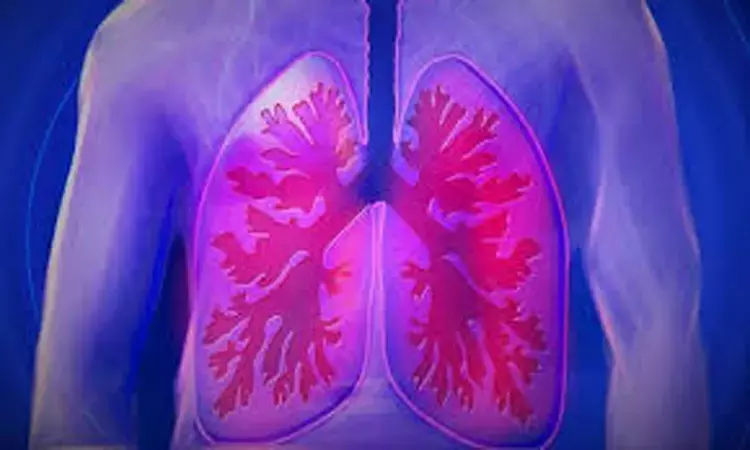- Home
- Medical news & Guidelines
- Anesthesiology
- Cardiology and CTVS
- Critical Care
- Dentistry
- Dermatology
- Diabetes and Endocrinology
- ENT
- Gastroenterology
- Medicine
- Nephrology
- Neurology
- Obstretics-Gynaecology
- Oncology
- Ophthalmology
- Orthopaedics
- Pediatrics-Neonatology
- Psychiatry
- Pulmonology
- Radiology
- Surgery
- Urology
- Laboratory Medicine
- Diet
- Nursing
- Paramedical
- Physiotherapy
- Health news
- Fact Check
- Bone Health Fact Check
- Brain Health Fact Check
- Cancer Related Fact Check
- Child Care Fact Check
- Dental and oral health fact check
- Diabetes and metabolic health fact check
- Diet and Nutrition Fact Check
- Eye and ENT Care Fact Check
- Fitness fact check
- Gut health fact check
- Heart health fact check
- Kidney health fact check
- Medical education fact check
- Men's health fact check
- Respiratory fact check
- Skin and hair care fact check
- Vaccine and Immunization fact check
- Women's health fact check
- AYUSH
- State News
- Andaman and Nicobar Islands
- Andhra Pradesh
- Arunachal Pradesh
- Assam
- Bihar
- Chandigarh
- Chattisgarh
- Dadra and Nagar Haveli
- Daman and Diu
- Delhi
- Goa
- Gujarat
- Haryana
- Himachal Pradesh
- Jammu & Kashmir
- Jharkhand
- Karnataka
- Kerala
- Ladakh
- Lakshadweep
- Madhya Pradesh
- Maharashtra
- Manipur
- Meghalaya
- Mizoram
- Nagaland
- Odisha
- Puducherry
- Punjab
- Rajasthan
- Sikkim
- Tamil Nadu
- Telangana
- Tripura
- Uttar Pradesh
- Uttrakhand
- West Bengal
- Medical Education
- Industry
Vitamin D deficiency predicts rapid lung function decline in healthy smokers: Study

Korea: Vitamin D deficiency may predict more rapid lung function decline in healthy smokers, finds a recent study in the journal Respiratory Medicine. Further, according to findings observed in smokers, vitamin D-deficient people showed more rapid decline in FVC and FEV1. However, FEV1/FVC decline did not differ between vitamin D-deficient and -normal individuals.
There is a lack of reliable evidence from a comprehensive large-scale study supporting associations between serum vitamin D (25-hydroxyvitamin D) level (SVDL) and lung function decline (LFD) in healthy individuals. Considering the same, Heung-Woo Park, Department of Internal Medicine, Seoul National University Hospital, Seoul, Republic of Korea, and colleagues assessed the associations between SVDL and LFDs, measured as the forced vital capacity (FVC), forced expiratory volume in 1 second (FEV1) and FEV1/FVC ratio, using a well-established health screening database.
Using linear mixed models, the researchers analyzed serial SVDL and lung function data, which were performed respectively in smoker and non-smokers separately. Vitamin D-deficient individuals (VDDs) were defined when their SVDLs were consistently lower than 20 ng/mL at all measurements. A total of 1371 individuals were analyzed.
Key findings of the study include:
- The mean FEV1 decline rates of VDDs and vitamin D-normal individuals (VDNs) in smokers were –33.35 mL/year and –15.61 mL/year respectively, over a mean of 6.29 years of observation with statistical significance.
- There was no significant differences observed between decline rates of FEV1 in non-smokers.
- FVC decline rates of VDDs were significantly greater than those of VDNs only in smokers.
- FEV1/FVC ratio decline rates showed no significant difference between VDDs and VDNs regardless of their smoking status.
"Consistently low SVDLs predicted more rapid FEV1 and FVC declines in smokers," wrote the authors. "However, FEV1/FVC decline rate was not associated with SVDL. SVDL may be used to identify healthy smoking individuals at high risk for accelerated LFD."
Reference:
The study titled, "Vitamin D deficiency and lung function decline in healthy individuals: a large longitudinal observation study," is published in the journal Respiratory Medicine.
DOI
Dr Kamal Kant Kohli-MBBS, DTCD- a chest specialist with more than 30 years of practice and a flair for writing clinical articles, Dr Kamal Kant Kohli joined Medical Dialogues as a Chief Editor of Medical News. Besides writing articles, as an editor, he proofreads and verifies all the medical content published on Medical Dialogues including those coming from journals, studies,medical conferences,guidelines etc. Email: drkohli@medicaldialogues.in. Contact no. 011-43720751


